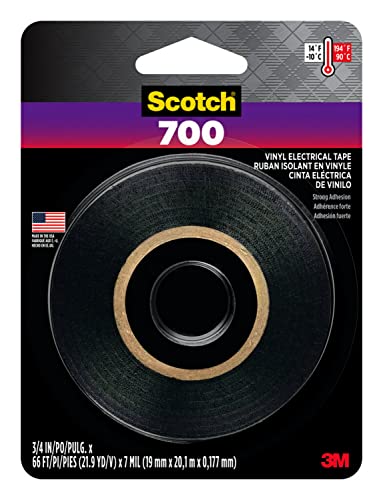It's a good thing to know how an air conditioner functions. Have you ever wondered if an AC could run without water? How does an AC give us cool air? This is such an interesting topic! We've researched the answers for you.
Most AC units do not use water to operate. Instead, water droplets form because of the freezing temperature. For more insight on how an AC unit functions, see below how the AC processes air circulation:
- Air Filtration
- Evaporation
- Compression
- Condensation
- Air Release
In this article, you'll learn how the AC functions and we'll share the basics of running an air conditioner. We'll also discuss related issues surrounding this device. So, continue reading with us!
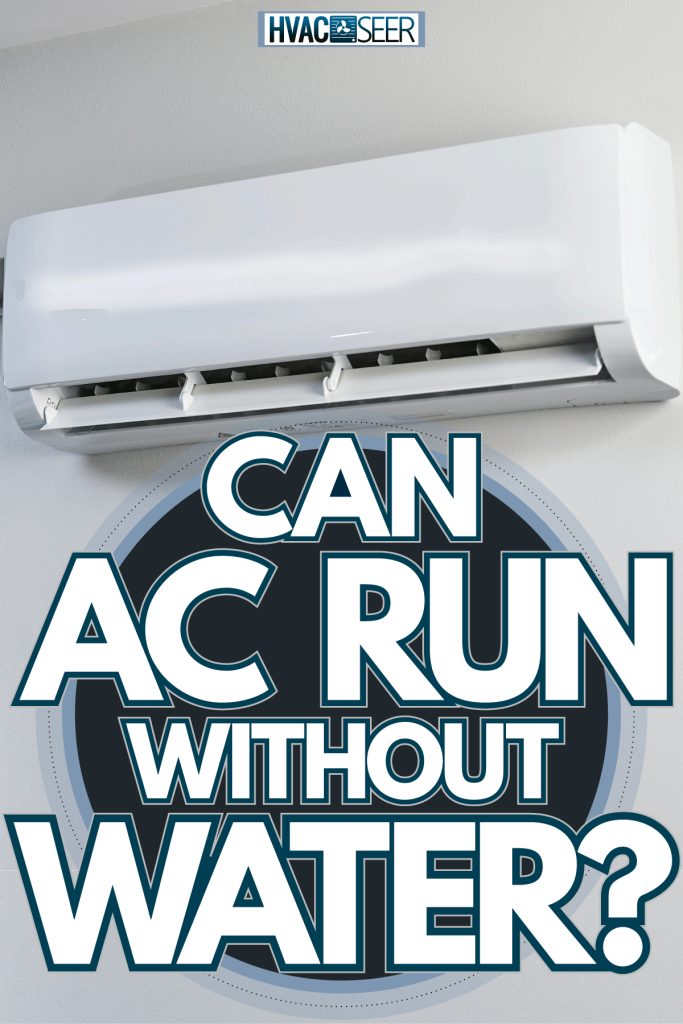
How Does An AC Work?
AC units are a modern convenience that makes our home more comfortable. That's why it's interesting to know how these devices function. We will share with you how a typical AC unit processes the air in more detail below.
1. Air Filtration
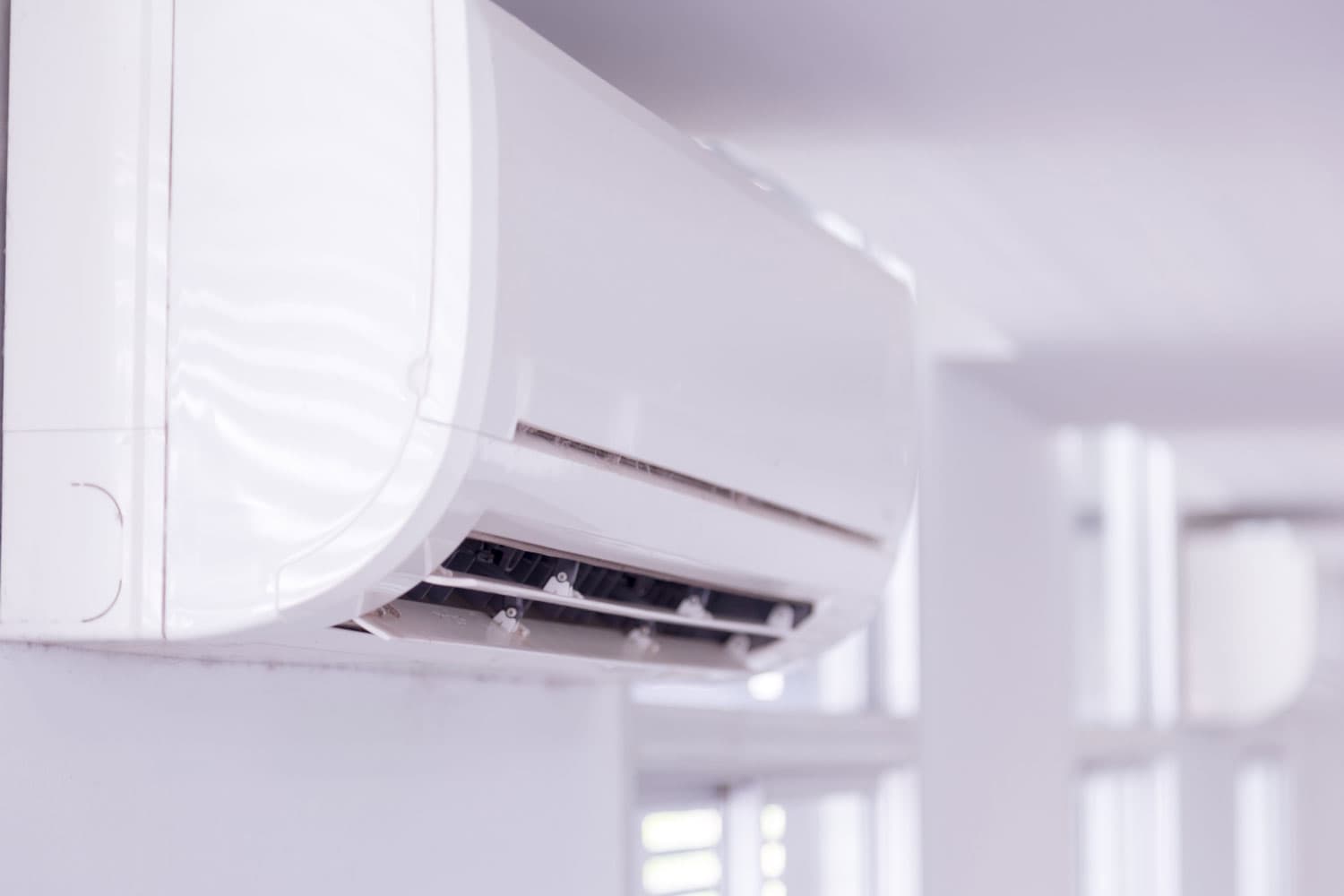
Once you activate your AC, the fan sucks the air from the room through the filter screen. Air filters block dirt and solid particles that may damage the AC motors.
This air filter is inside the AC unit and differs from the external air filter. Note that the external air filter also blocks particles when the AC releases the processed air.
Most AC units have at least two air filters. But, some AC units have more than two filters, which is excellent for maximum air filtration. It's very important to have air filters because they collect tiny elements that may be harmful if we breathe them in.
2. Evaporation
The filtered air will next enter the evaporator. It passes through the coil in the evaporator that absorbs the heat from the room.
There is a liquid refrigerant stored inside the evaporator coil, which drastically cools the filtered air from its initial temperature. We'll talk more about refrigerants later in this article.
The evaporator is connected to the compressor and condenser motors via copper tubes. These are the three main components of an AC unit, and each is responsible for continuous air circulation.
3. Compression
The compressor adds pressure to the refrigerant and transmits energy to the condenser coil, which causes the fan motors to turn on.
The heat from the room gets absorbed by the compressor and converted into a cooler substance. The compressor then connects to the condenser to prepare the refrigerant for release by the condenser.
4. Condensation
Condensation, in contrast to evaporation, is the act of converting gas particles into liquid. In an air conditioner, the condenser stores the pressurized refrigerant.
The pressure signals the condenser motor, so the device emits the desired temperature into the room. The condenser communicates with the thermostat to regulate the temperature at which the air conditioner should operate.
5. Release of Air
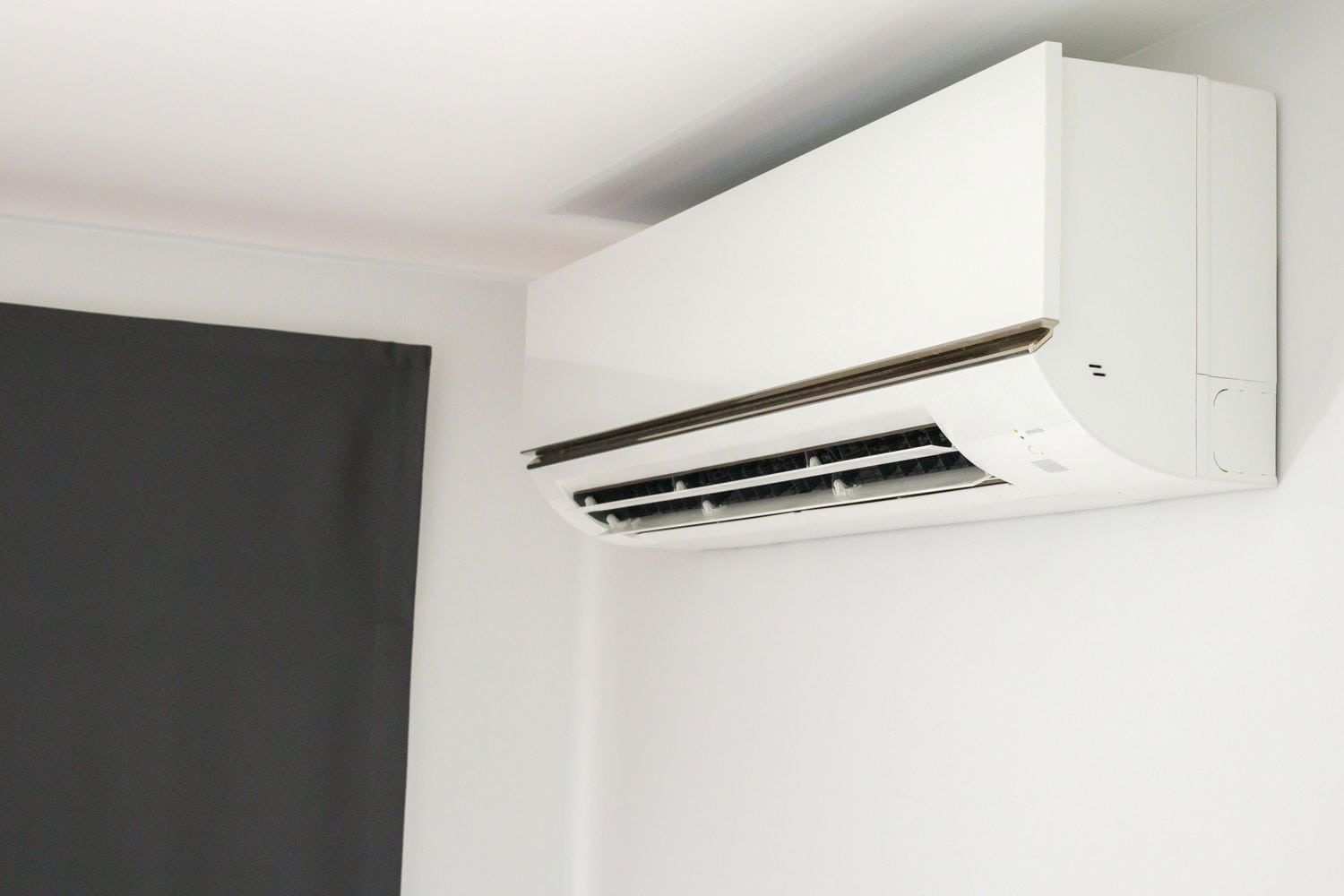
The last step is when the AC releases air to circulate throughout the room. So, the air is slowly altering the room temperature depending on what degree you've set the AC's thermostat.
Next, the AC will return to filtering the air to process inside the AC, releasing air. The AC significantly repeats the process until the thermostat reacts when it achieves the desired temperature.
Based on how the AC functions, you see that there's no water needed to add up in between the processes. However, there might be a slight amount of water present in an AC because of moisture and condensation from a cool temperature.
So, to answer the question, "Can an AC run without water?" Yes, the AC can continue operating without using water.
What Is An Evaporative Cooler?
An evaporative cooler is a type of cooling system that can operate with water. The main difference between this device and an air conditioner unit is the lower emission of cool temperature.
When operating an evaporative cooler, it sucks the air from outside the window and releases filtered air throughout the room. There is a water tank at the back of the evaporative cooler, and the water acts as the source of humidity.
However, adding water to the evaporative cooler is optional. It can run like a normal air ventilator.
See this evaporative cooler on Amazon.
Evaporative Cooler (EC) Vs. Air Conditioner (AC)
You should know what cooling system best fits your needs. So, we've listed the differences between an air conditioner (AC) and an evaporative cooler (EC).
- An EC uses water as a natural cooling agent. An AC uses a refrigerant. So, an EC is safer to use for the long term.
- You'll consume less electrical energy using an EC versus an AC.
- An AC is more efficient at air circulation because it has more internal components.
- An AC requires higher maintenance than an EC.
- You'll find an EC is more convenient to move from one place to another. Most AC units are mounted and not easily repositioned.
If you want to decide what's better between the two, know where you're going to use it and if it will be permanent or temporary. Also, consider the size and features of the device.
How Cool Can An AC Get?
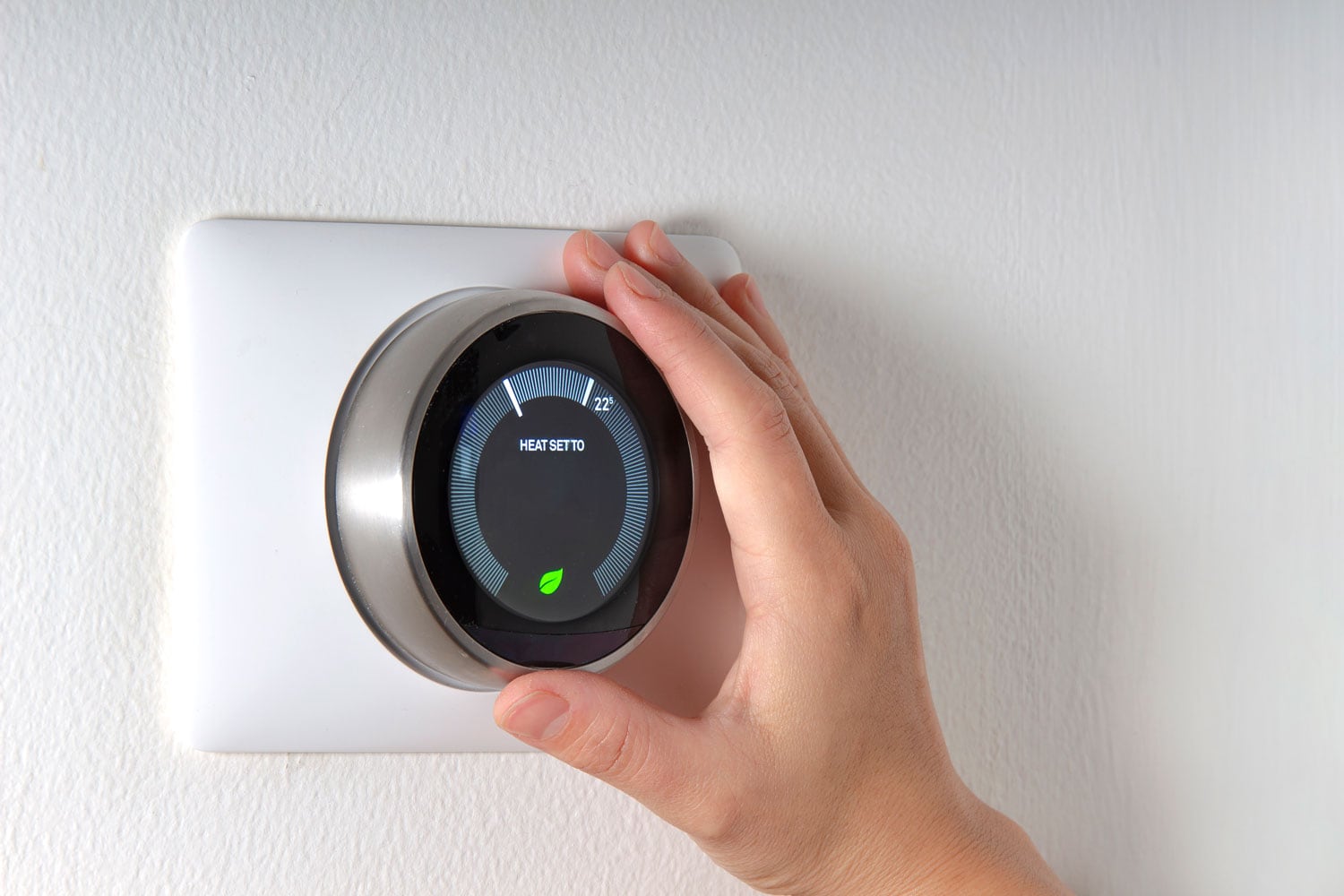
Most AC units can cool down to 20 degrees Fahrenheit, depending on the manufacturer. It's not good to go below 10 degrees Fahrenheit, as excessive moisture can cause damage to the AC's internal motors.
How To Minimize Moisture In A Room?
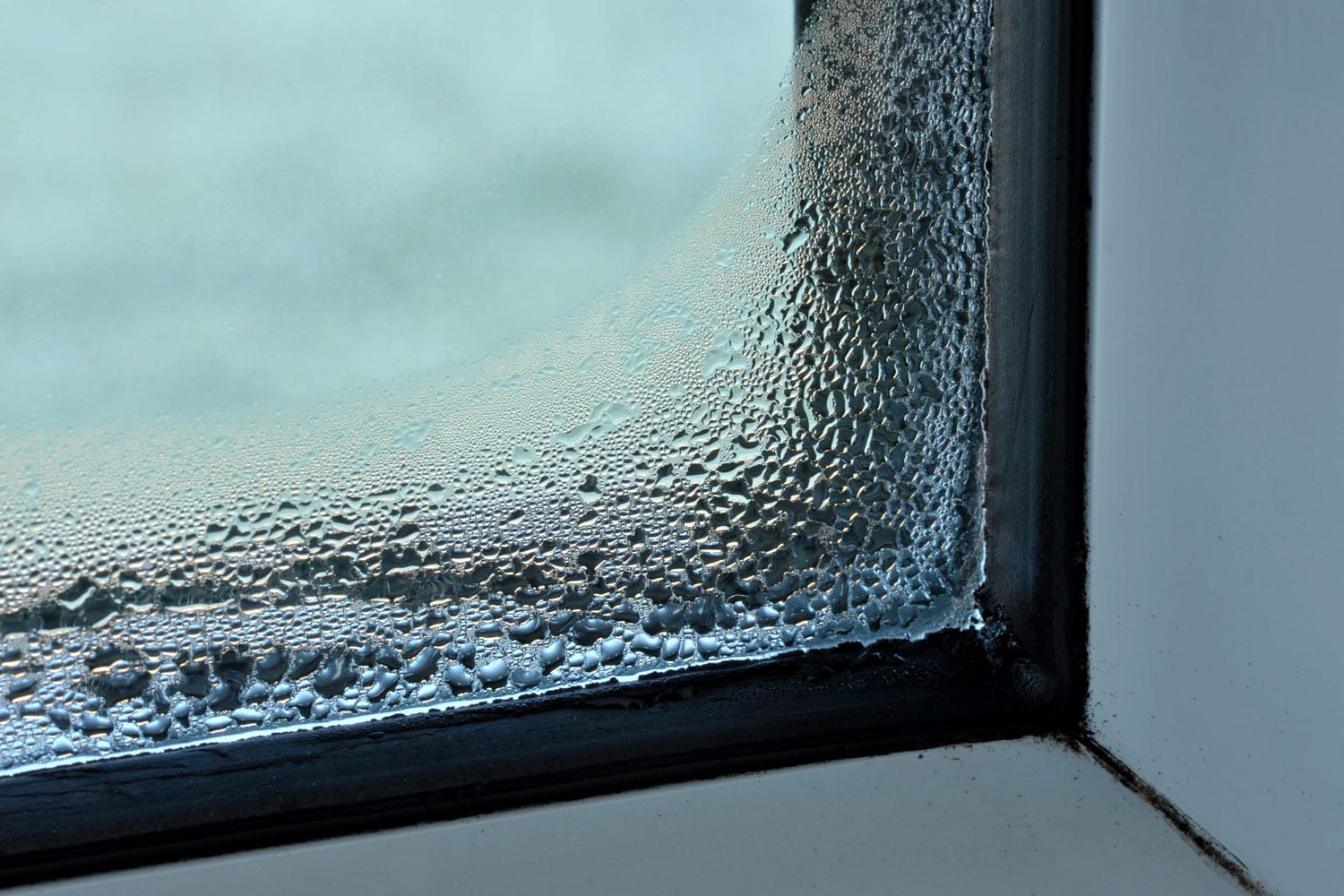
Your AC might create too much moisture with prolonged use, specifically if set at a low temperature. So, it's important to know how to reduce the amount of moisture your AC makes. See below for helpful tips.
Set the Temperature Higher

You can set the temperature higher by 2-4 degrees than what you normally prefer. Do not go higher, than 85 degrees Fahrenheit, as your AC may not handle that temperature and the air may be too dry.
Turn On Fans
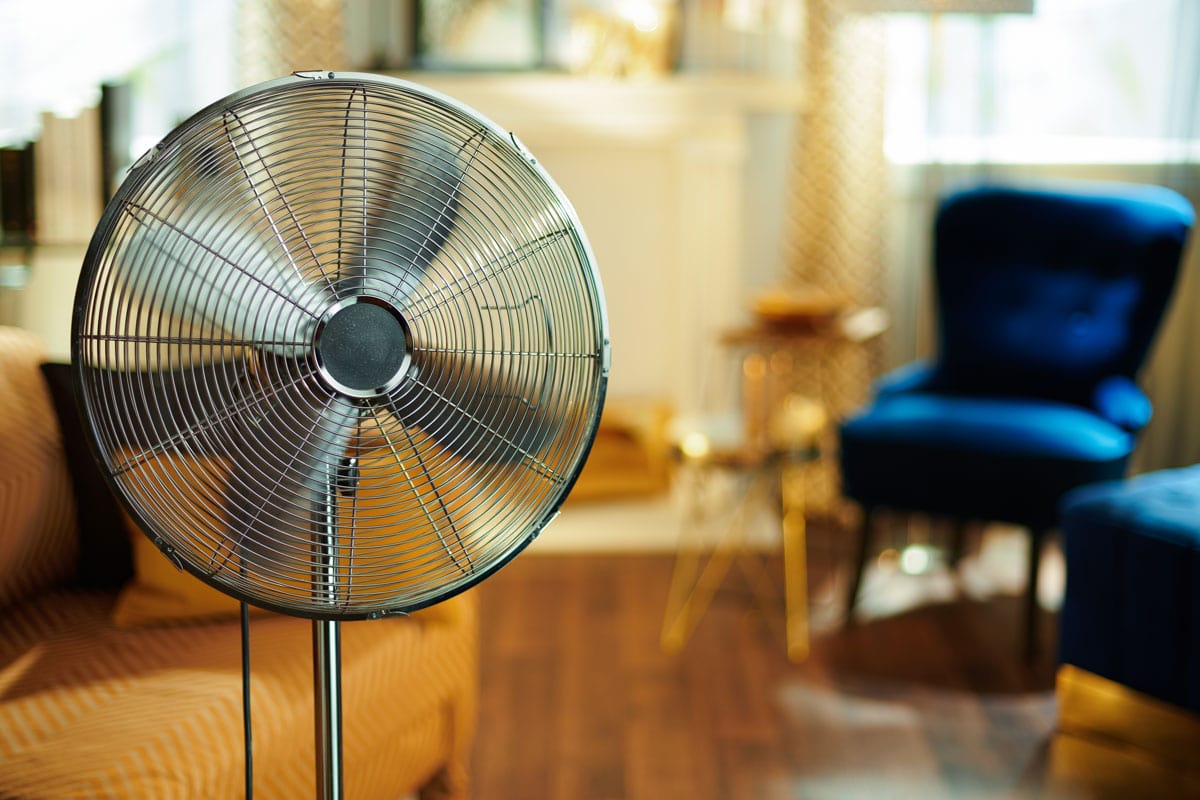
You can turn on ventilator fans to better distribute the air throughout a room. An AC unit may have difficulty spreading the air depending on its condition and location. With the use of fans, you help redirect the air to spots.
Also, fans help eliminate moisture by letting it evaporate. You'll feel the air improve as moisture decreases.
See this portable fan on Amazon.
Why Is Your AC Not Cooling Down?
There are two main reasons an AC is not cooling down: clogging or motor problems. Carefully check your AC to make sure it's performing well. Consider the reasons below.
Clogging
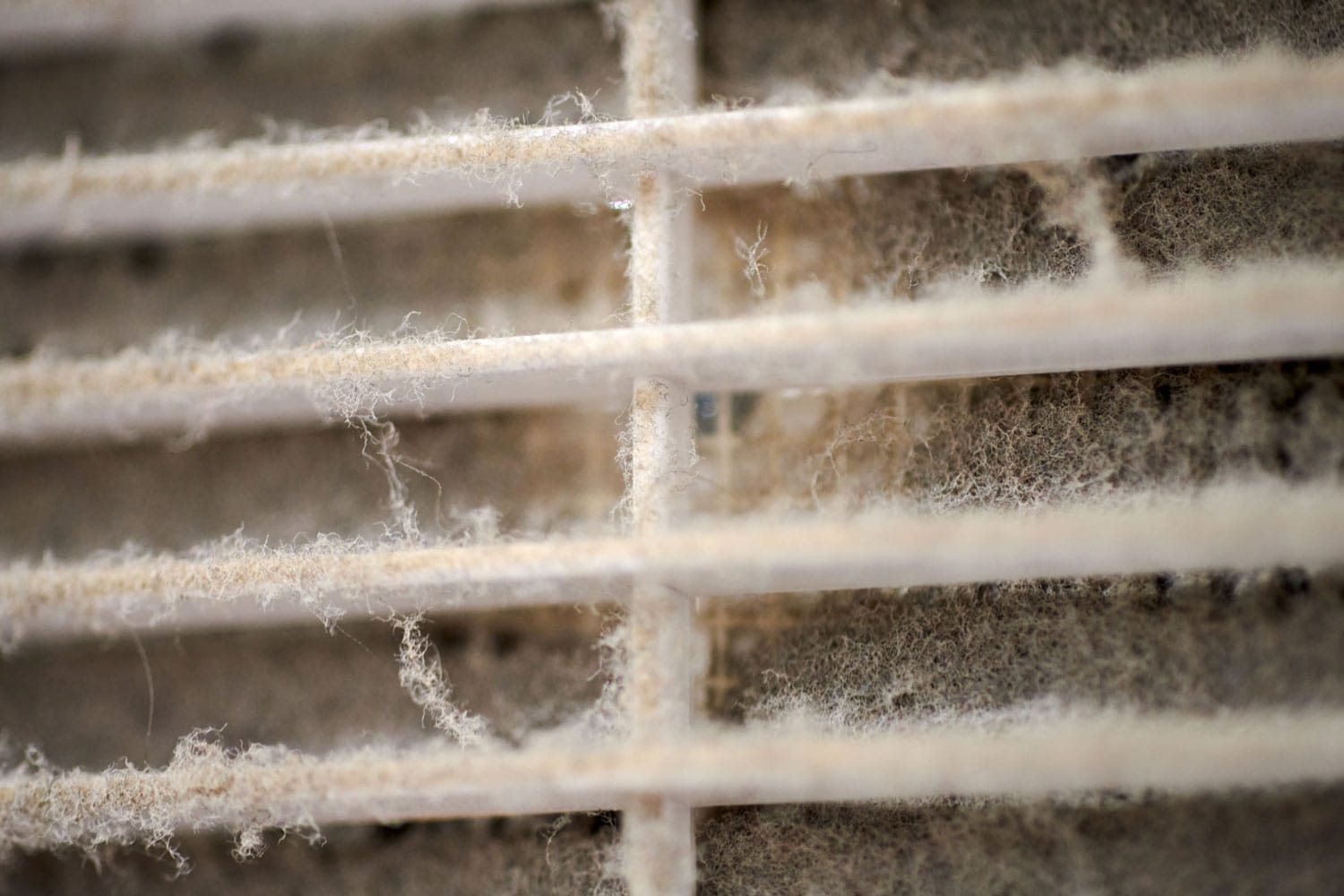
Clogging will cause air circulation blockage. The first thing you should check if the air feels uncomfortable is the AC filter.
Replace the filters if they are bad. You may refer to the user's guide of your AC and look for the accurate size of your filter.
You may also clean the filter if you don't have a replacement yet. Remove it with a screwdriver and wash it thoroughly with water and soap.
Faulty Condenser Motor
Another cause is that the AC cannot blend enough refrigerant because of a defective condenser motor. The condenser composes liquid that will cool the air.
However, you can also check the condenser fan, which releases air. See if it's spinning correctly.
You may apply a lubricant to the condenser fan if it's too tight to spin. Just be sure you ask a technician's help before doing so.
How Can You Prevent Electric Shock On An AC?
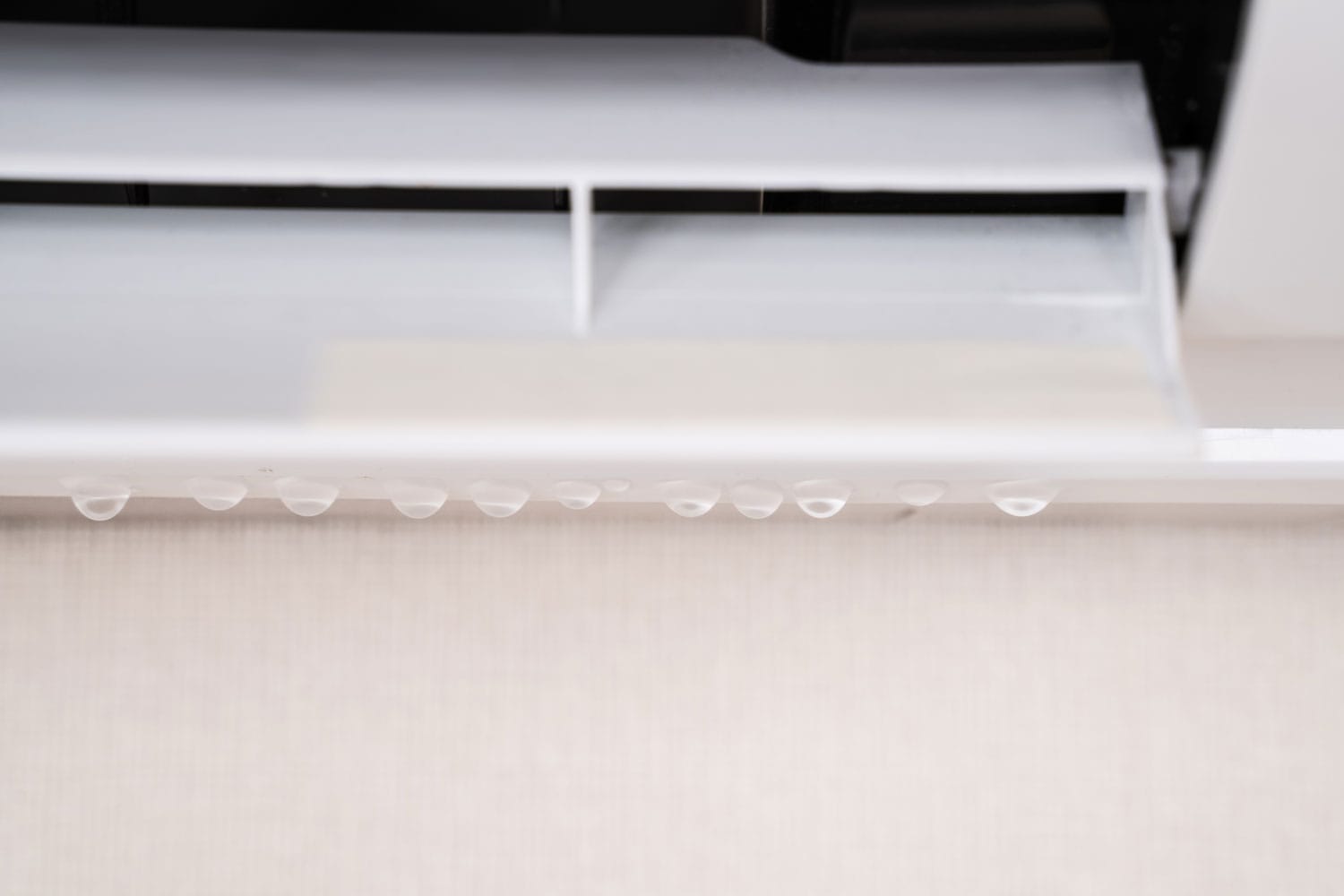
Electric shock involving an AC is usually due to faulty wires or wet components. An electric shock happens when there's an unusual flow of electricity coming from a faulty source.
Although the shock might be of minimal effect to you, it can be dangerous if left ignored. Since we're talking about water particles on an AC, it's critical to understand how moisture can affect the flow of electricity.
Faulty Wires
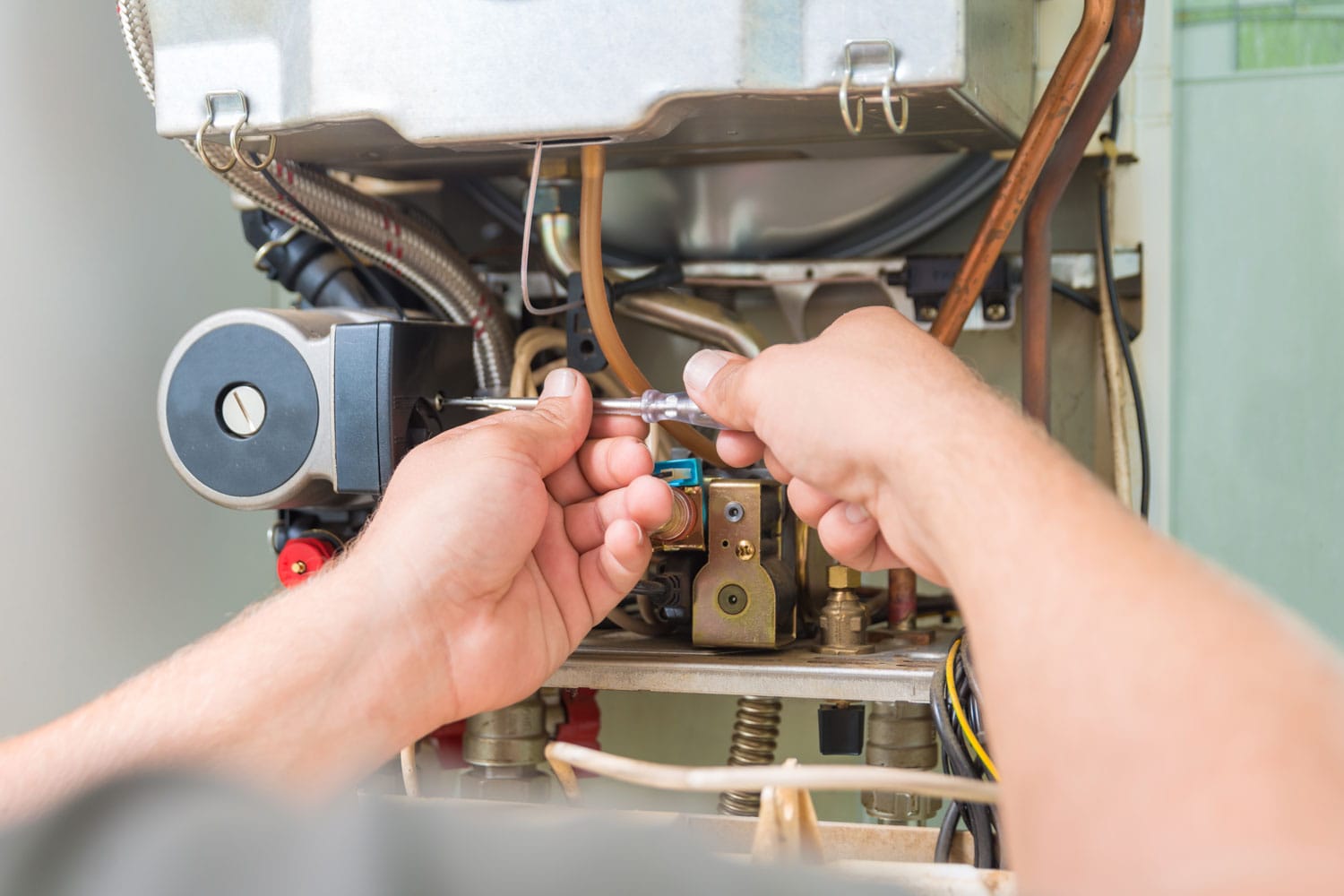
Faulty wires require a professional's guidance. Wires can get ripped out if too much moisture or heat penetrates the AC unit. An electric shock could happen if when wires are exposed.
To fix an exposed wire, you can wrap it with electrical tape to secure and prevent the electricity from flowing outside.
See this electrical tape on Amazon.
Wet Components
Another cause of electric shock is due to wet components. When too much moisture is present, it can form small droplets of water. The wires may send electrical energy to the water particles, which will trigger a spark.
Dry out any excess liquid by wiping the internal components with a soft cloth or use an air dryer.
See this portable air dryer on Amazon.
Conclusion
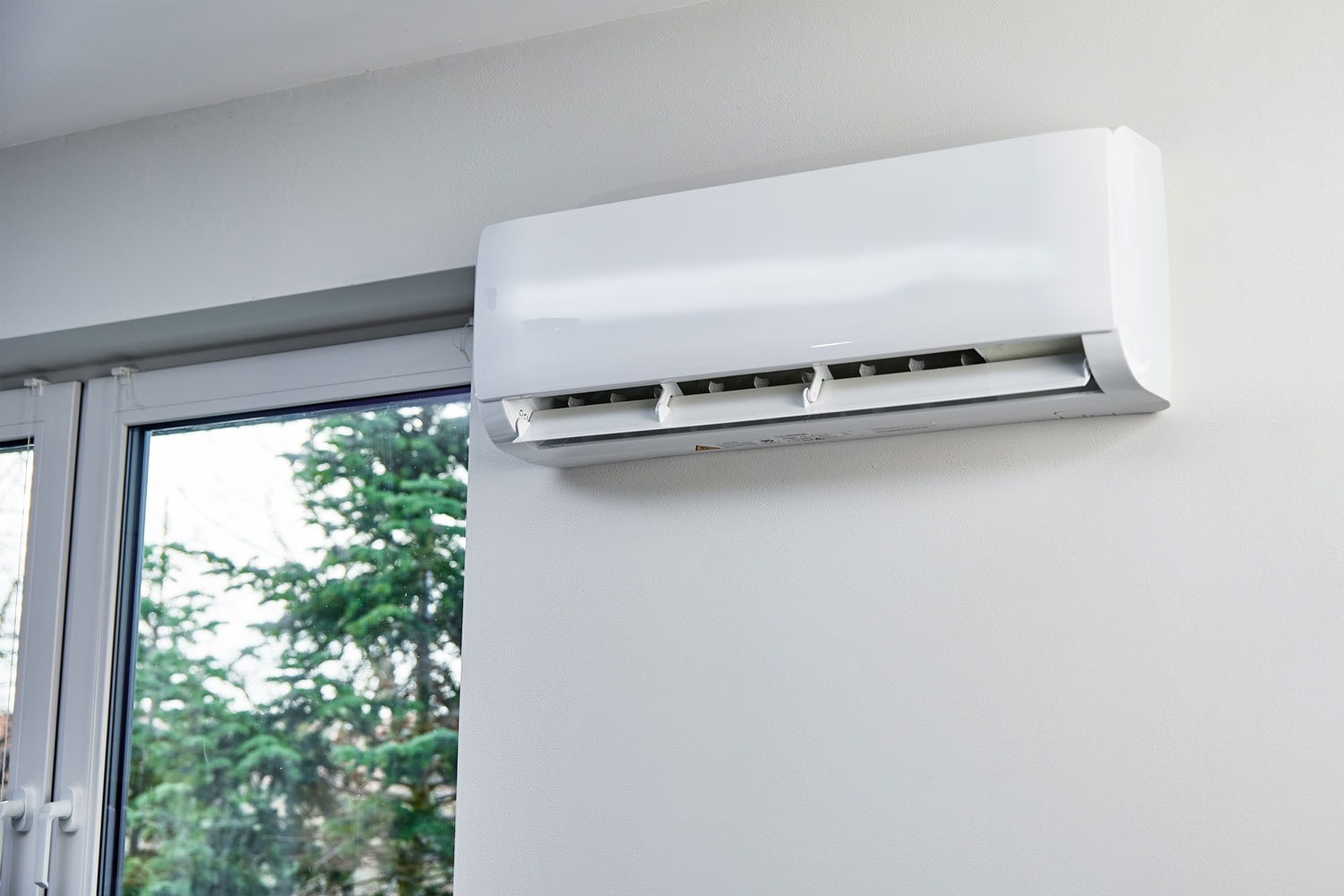
Throughout this article, we've learned that an AC can operate without pouring water on it. Instead, an evaporative cooler better describes a water-dependent cooling system.
We also reviewed how the AC functions and what to look for if the device doesn't cool down.
Also, we looked at how moisture may cause electric shock. And remember, it's important to observe the condition of your AC to ensure its performance.
Did you find this article useful? If so, you might also enjoy reading:



